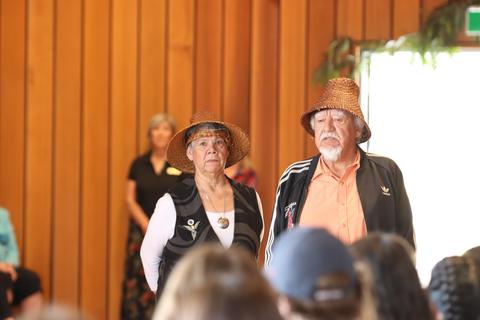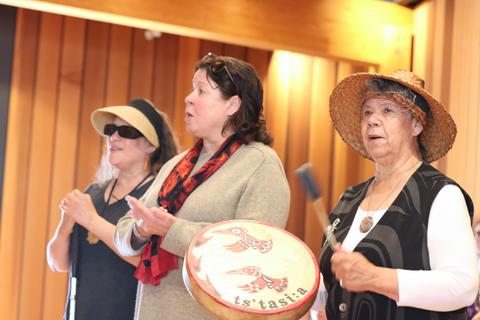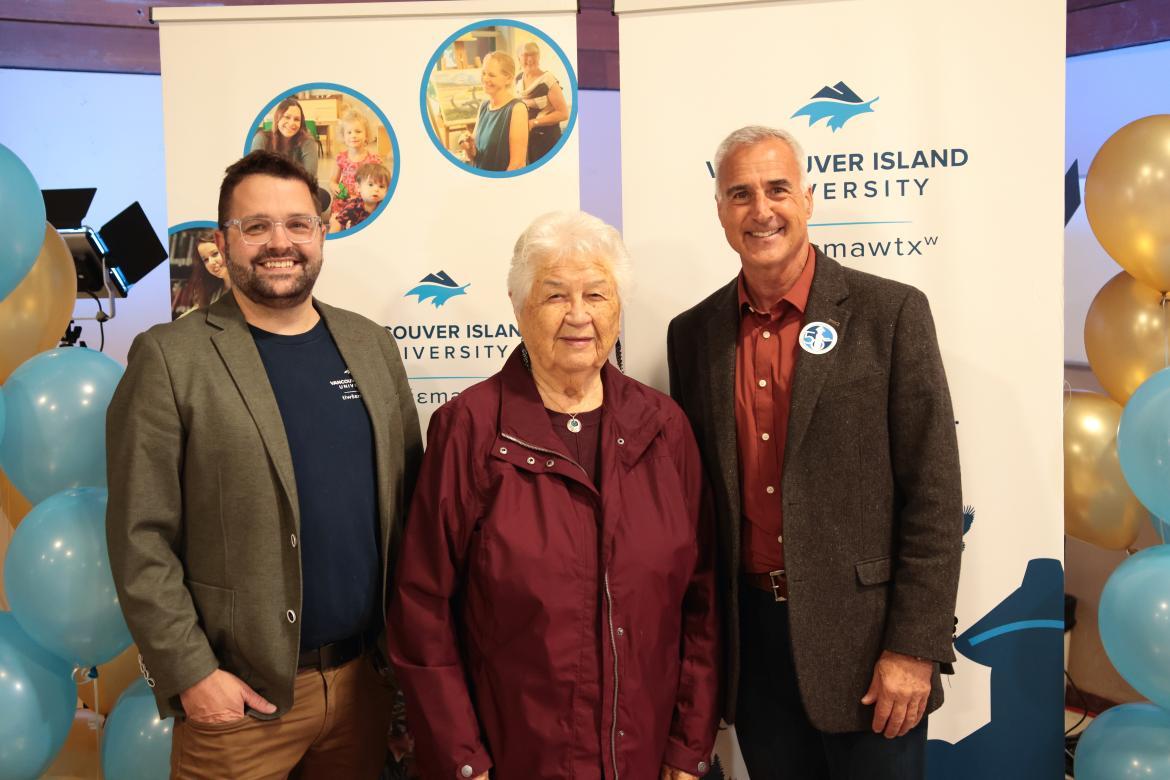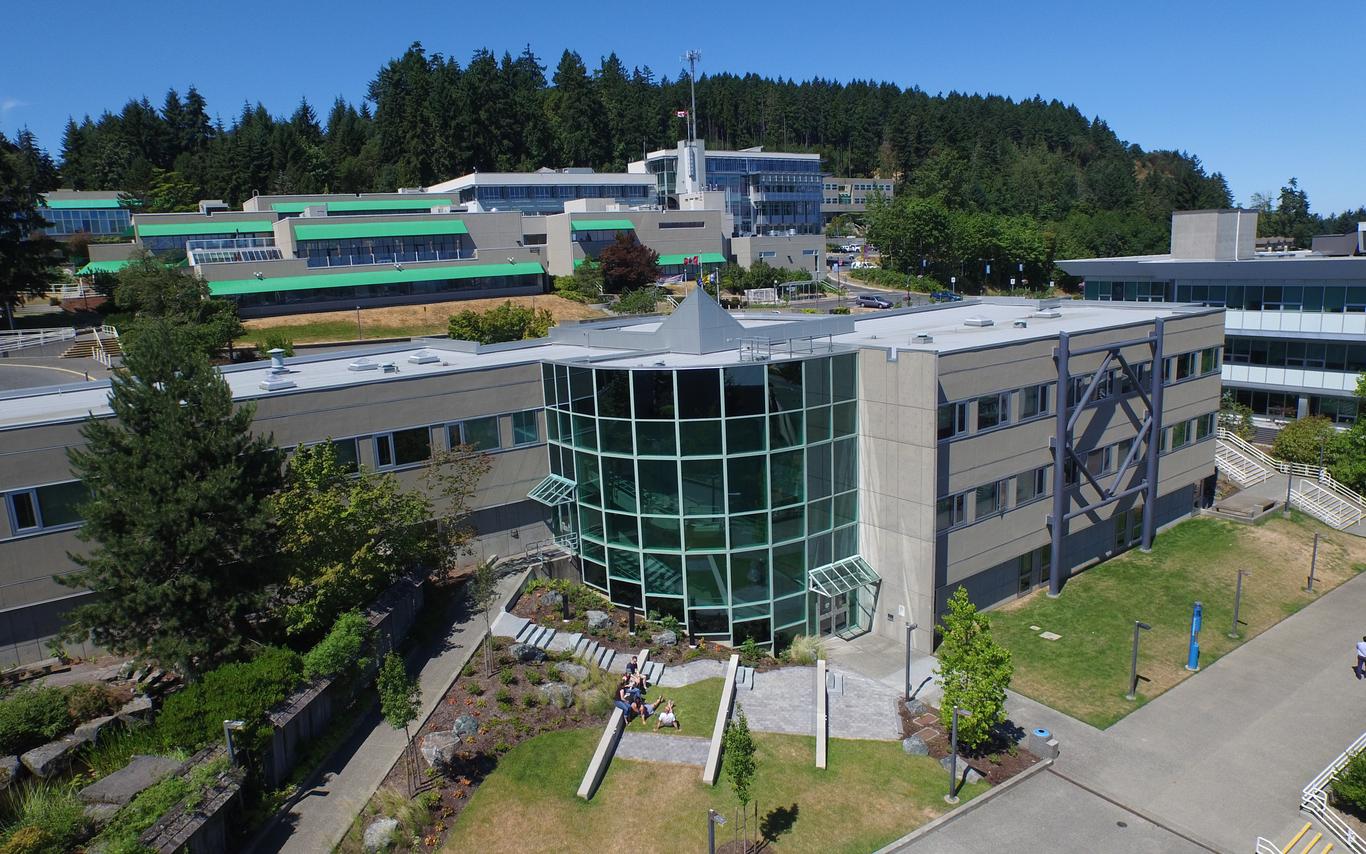Message from the Provost
Dear VIU Community,
Last week at the regular meeting of Senate, I shared a vision for our academic programs. Subsequently, we created a video outlining some of the exciting changes and opportunities ahead for Vancouver Island University. I’d like to summarize and expand on those themes, highlighting how we are building a stronger, more resilient university.
Our mission at VIU has always been to serve our students, our region, and our communities. As we move into this new chapter, we are committed to doing so in bold, relevant, and future-focused ways. Our goal is to create a ripple effect of positive outcomes through trust and collaboration with our students, partners, and the broader community.
To achieve this, we’re making targeted changes to our academic programs to ensure we meet current demands and are prepared for future opportunities. Innovation requires trying new approaches, learning from them, and letting go of what doesn’t work. This thoughtful evolution is driven by a challenging fiscal environment and, more importantly, by our students’ needs.
These efforts align closely with VIU’s Strategic Plan, People Place Potential, and the broader goals championed by President Deborah Saucier. At the heart of our work are four guiding themes:
- Indigenous Commitments: VIU is deeply committed to supporting Indigenous education and building meaningful partnerships with Indigenous communities. Recognizing the impacts of intergenerational trauma, we are creating wraparound supports and fostering an inclusive environment for Indigenous students and first-generation learners.
- Career-Ready Education: Preparing students for meaningful roles in their communities and beyond remains a priority. Our programs are designed to equip students with the skills, confidence, and experience they need to excel in the workforce. Our commitment to Trades is a core part of this theme, but it also extends across all our programs.
- Access to Opportunity: As an access institution, our mission is to create pathways for all learners. We are proud of the countless success stories of students who have thrived at VIU, and we remain steadfast in our commitment to making education accessible and inclusive.
- Place-Based and Community Focused: Our coastal and island setting is one of our greatest strengths. We aim to ensure our programs reflect and connect deeply with the unique characteristics of this extraordinary place.
These themes guide our priorities in several key areas:
- Sustainability and Environmental Stewardship: With our coastal and island context, VIU is uniquely positioned to lead in environmental studies and address pressing global challenges for coastal communities. This area is anchored in the physical sciences, but also extends across the disciplines.
- Health and Well-being: Responding to the growing societal focus on physical, mental, and community health, we are enhancing our programs to meet these emerging needs.
- Tourism, Parks, Recreation, and Hospitality: These vital sectors of our regional economy require skilled graduates, and VIU is committed to providing them.
- Education and Lifelong Learning: We aim to provide flexible and accessible learning opportunities, supporting students’ growth throughout their lives.
To align with these priorities, we are implementing several academic structural changes:
- Bringing the Faculty of Academic and Career Preparation and the Faculty of Education under a single Dean to foster collaboration.
- Moving Early Childhood Education and Education Assistant and Community Support Worker programs into the Faculty of Education.
- Integrating the Centre for Innovation and Excellence in Learning into the Faculty of Education, streamlining support for faculty and student learning.
- Aligning Kinesiology with the Faculty of Health Sciences and Human Services to strengthen our health and wellness programs.
- Establishing a centralized Continuing Studies unit to broaden opportunities for lifelong learning.
- Transitioning the Department of Geography to the Faculty of Science and Technology, creating a sustainability-focused cluster that underscores our environmental leadership.
These changes are just the beginning. By 2025-26, we aim to have these initial structures in place, setting the stage for continued growth and transformation.
At the core of these changes is our unwavering commitment to our students. We are redesigning our structures to prioritize their needs, breaking down traditional silos to create something dynamic and responsive. Our approach respects VIU’s history, meets the demands of today, and prepares our students for tomorrow.
A central aim of these changes is to provide greater flexibility to meet student interests and societal demands. The analogy I like to use is a shift from treating our offerings as ladders, where students move upward within narrow bounds, to a climbing wall that allows for upward and lateral movement. This will require us to change the way we organize ourselves, deliver our programs and communicate learning opportunities to prospective and current students. I believe we are nimble and flexible enough to meet this approach.
Change is challenging, but it is necessary. Together, we can build a future-ready VIU that continues to thrive as a cornerstone of our region.
Thank you for being part of this journey.
Indigenous Updates
VIU’s Shq’apthut (A Gathering Place) was recently expanded to include a ceremonial space, Elder-in-Residence offices, upgrades to the existing kitchen, and universally accessible washrooms. The upgrades will help support and address the need for cultural spaces on campus as the number of Indigenous students continues to grow. A beautiful celebratory event was held on September 19th to officially open the facility and welcome the VIU community.


tiwšɛmawtxʷ 50th Anniversary

VIU tiwšɛmawtxʷ celebrated its 50th year of operation on October 5, 2024. VIU began offering programs in the qathet region in 1974 in a small office building on Marine Avenue. The campus has since grown to offer trades programs, Adult Basic Education, Indigenous Studies, and more. VIU is investing in new infrastructure, including a new state-of-the-art nursing lab, and strengthening partnerships with Tla’amin Nation and other key partners. Read more about the tiwšɛmawtxʷ campus’ goals and celebrations.
Fulbright Chair
In January, we will be welcoming VIU’s 2025 Fulbright Canada Research Chair in Indigenous Studies, Dr. Kimberly Coleman. Dr. Coleman’s research will be on the social impacts of mountain biking in Indigenous communities. During her research term, Dr. Coleman will be conducting a case study on the Ucluelet Mountain Bike Association and comparing her findings with a case study from Carrabassett Valley in Maine, United States.
The Office of the Provost will be hosting a Meet & Greet event on January 23, from 12:00 – 1:00 pm at Shq'apthut - A Gathering Place, which will give the VIU community a chance to learn more about Dr. Coleman and her research. An invitation will be sent in January.
Events and Awards
Connect with Mike
The spring 2024 semester was the start of the “Provost’s Circle,” an interactive opportunity for VIU community members to share their most valuable experiences at VIU and how those experiences help shape the future of the institution in its current period of transition. Sessions for the fall have started and will continue into the spring. Visit the Provost Circle webpage to register for an upcoming session.
2024 Provost and President’s Awards
Congratulations to this year’s Provost’s Awards winners!
- Provost’s Awards for Excellence in Teaching Design and Practice recipients
- Provost’s Awards for Scholarship, Research and Creative Activity recipients
The President’s and Provost’s awards ceremony will be celebrated in spring 2025. The date is TBD.
How to Submit
Nominations for the Teaching Awards must be submitted electronically to teachingawards@viu.ca. Please ensure nomination packages are complete, as outlined on the Teaching Awards webpage.
Nominations for the SRCA awards must be submitted through the SRCA award nomination form.
Faculty Resources
The CIEL blog holds a variety of resources for employees to familiarize themselves with using artificial intelligence (AI) and Microsoft Teams in the classroom and in meetings:
- New faculty: Register for a Faculty Orientation to Online Teaching session
- Curriculum support for faculty
- AI prompts for teaching and learning
Good New Stories and Accomplishments
Do you have a good news story about a colleague, team, or yourself that you would like to share in an upcoming Provost Newsletter? Fill out the Good News Stories form. The form link can also be found on the right side of the Provost Newsletter homepage.
- With funding through Olympic Solidarity, Kinesiology Professor Rick Bevis led 30 coaches and over 50 athletes representing 15 eastern Caribbean nations in a Federation Internationale de Volleyball (FIVB) coaching course and high-performance training camp in St. Kitts.
- VIU Jarislowsky Chair in Trust and Political Leadership Michael MacKenzie shared his expertise on the BC United Leader Kevin Falcon’s decision to suspend his party’s campaign in a deal with BC Conservative Leader John Rustad.
- The newly renovated Shq’apthut has been renovated to include a ceremonial area, an Elder-in-residence office, and upgrades to the kitchen and universally accessible washrooms. The story was featured in Nanaimo News Now and Times Colonist.
- Professor Gregory Arkos shared his expertise on the northern lights in the Nanaimo News Bulletin.
- VIU’s Canada Research Chair Timothy Green is lead researcher in a collaboration between VIU and the Canadian Food Inspection Agency to improve testing for biotoxins in seafood and improve food security for remote and Indigenous communities along the coast.
- Dr. Ajay Shrestha and his research team received funding from the Office of the Privacy Commissioner of Canada to investigate artificial intelligence privacy concerns among young users. Details on his research were featured in the Nanaimo News Bulletin. Dr. Shrestha was also featured in CBC, where he discussed social media platforms using users’ data for artificial intelligence training.
- Psychology Professor Dr. Cameron Gordon shared his expertise in the New York Times article ‘What to Do When a Joke Hurts Your Feelings.’
- Education Professor Dr. Paula Waatainen shared how to talk to kids and teens about elections in the CBC Listen podcast.
- Manager of Indigenous Initiatives Heather Burke was featured in the podcast Indigenous Insights: An Evaluation Podcast to talk about working on the Xwulqw’selu Riparian Guardians program.
- Dr. Whitney Wood, History Professor and VIU’s Canada Research Chair in Historical Dimensions of Women’s Health, is working with researchers to digitize Vancouver Women’s Health Collective documents to preserve feminist health activism for future study.
- History Professor Dr. Cheryl Warsh was interviewed in the Scientific American article ‘Was Thalidomide Safe? Frances Oldham Kelsey Was Not Convinced.’ Dr. Warsh also recently wrote a book on Kelsey.
- English Professor Dr. Sarah Crover presented at the 2024-25 Arts and Humanities Colloquium Series. Her presentation was titled ‘Shakespearean Neverwheres: Victoria (BC), Ann Hathaway’s Cottage, and Nostalgia for “Merry Olde England.”’
- Modern Languages Studies Professor Dr. Yoichi Mukai also presented at the 2024-25 Arts and Humanities Colloquium Series to discuss two of VIU’s linguistic initiatives: The Linguistic Research Lab and the ‘Linguistics of the Day’ activities.
- Fisheries and Aquaculture Professor Dr. Spencer Russell talked with Aquaculture North America about the evolving aquaculture industry and how researchers are getting a handle on some diseases with vaccinations.
- VIU researchers at Mount Arrowsmith Biosphere Regional Research Institute (MABRRI) are working to protect and register land in the biosphere region. MABRRI has received research funding from Environment and Climate Change Canada’s Nature Legacy Program.
- Indigenous/Xwulmuxw Studies Professor Dr. Georgina Martin wrote the book Drumming Our Way Home: Intergenerational Learning, Teaching, and Indigenous Ways of Knowing, which she drew inspiration from her Secwépemc culture and teachings from her grandparents.
- Mathematics Professor and Math Learning Centre Coordinator Dr. Cobus Swarts was featured in VIU’s news article: 5 Questions with Cobus Swarts.
- The VIU Esthetics and Spa Therapy program has moved into a newly renovated space next to the Hairdressing program on the Nanaimo campus.
- Community Planning Professor Mark Holland moderated a discussion on the housing crisis at the Vancouver Island Economic Alliance summit.
- Postdoctoral Fellowship Researcher Dr. Joseph Monaghan was a recipient of the Michael Smith Health Research BC 2024 Research Trainee award.
- Political Studies Professor Lauren Touchant and VIU’s political science department are developing two apps, “Whack-A-Party” and “Sage Votes,” to educate young voters on next year’s federal election.
- English department Professor Emerita Dr. Katharina Rout spoke at Broadview Press’ launch of the re-translation of Erich Maria Remarque’s novel All Quiet on the Western Front.
- Psychology Professor Dr. Becky Earhart is researching destination memory, which is described as: “how someone remembers who they told something to and what information they shared.” This research will help with child witness testimonies in the justice system.
- On November 13 and 14, VIU’s World Leisure Centre of Excellence hosted the Rural Recreation Summit, which will feature sessions by experts in risk management, leisure education, social prescribing and inclusive recreation opportunities.
- VIU’s Milner Gardens received a rating of 5 Blooms and special recognition of its rhododendron species garden in the 30th Edition of Communities in Bloom, Special Attractions category.
- Education Professor Heather Willms published a book, Bridging the Reading Gap, which explains evidence-based strategies and ready-to-use lessons to support readers in grades 4 to 8.
- Education Professor Dr. Paula Waatainen published some of her dissertation work in the open-source journal Democracy & Education. The title of her article is ‘A Situated Lens to Designing Assessments of Citizenship Competency.’
- Education Professor Heather Pastro was awarded a share grant to present ‘Canadian Children’s Indigenous Literature: Engaging Art Activities and Lessons for Teachers.’ Heather has also been published in a teaching textbook.
- Education Professor Dr. Wendy Simms was awarded a publish grant to publish her paper ‘Using Design-Based Research to Develop the Learning Outcomes of a Curriculum-Based Environmental Citizen Project’ in the journal Citizen Science: Theory & Practice.
